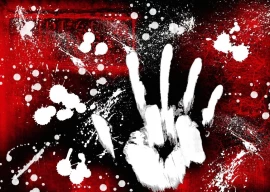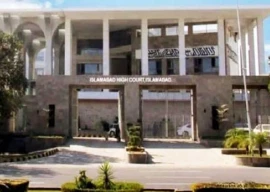
How did Europe get out of this period? We saw last week — in my oped titled “A brief history of modernity” published in this newspaper on March 18 — how the foundations of modernity came about through a burst of activity in Greece starting around 500 BC.
But two aspects are missing from this sequence, which says that the Renaissance in 16th century Europe renewed Europe’s bond with the Greeks and produced the modern world.
Indian director and writer Saeed Akhtar Mirza brings our attention to them in his book, The Monk, the Moor & Moses Ben Jalloun.
The first aspect is the manner in which this lost knowledge was retrieved. If Greek language had been forgotten in Europe, how did the church scholars read Aristotle? The answer is that for a couple of centuries, Muslims and Christian Arabs were the greatest minds in Europe. They had translated all of Aristotle and all of Plato into Arabic. When Europe was going through its Dark Ages it was the Muslims who kept the flame of knowledge burning.
When Aquinas read Aristotle, he was doing so not directly in Greek but through the works of the great Arab philosopher ibn Rushd, whom Aquinas knew as by his Latin name Averroes. This intellectual flowering of the Muslim world happened after the Arabs conquered Spain in the eighth century and kept bits of it till the 15th.
In Arab Spain and in Baghdad, a group of Athens-like freethinkers emerged from the great mixing of civilisations. They laid the foundations for much of modern science and medicine on the basis of what they picked up from the Greeks. The Muslim/Arabic origins of these discoveries are all around us. Algorithm comes to us from al Khwarizmi, algebra from the word ‘al jabr’ and alcohol from ‘al kohl’. The Christian Hunayn ibn Ishaq who translated Aristotle, also worked on Galen, the Greek physician.
In the 11th century ibn Sina worked out a theory of medicine, called Qanun fi al tibb. Its theory is still followed by India’s Hamdard. When we drink Rooh Afza to keep cool in summer, we are drinking a creation of ibn Sina.
The second aspect that Mirza wants us to know is that there was much original knowledge that came from the East and went to the West. Here he includes the work of the Indian mathematicians, and on optics by the Muslim al Haytham much before Newton.
Very quickly into the book Mirza informs us that the great poet Dante was a plagiarist. Through one of his characters in his book Inferno, he also questions: “the entire edifice of Western science, mathematics, philosophy, medicine, architecture and even music”.
This may be overstating the case and it is obvious that while the West kicked on once it received Greek wisdom, the East, whether Muslim or Hindu, has been left behind. But on the broad issue, it is not difficult to agree with Mirza after one reads his book.
History is rarely so clean as was recounted in the first piece I wrote about this. Ancient Greece was great but not perfect. It is true that Socrates had the sort of intellectual space 2,400 years ago that many modern nations don’t have in 2012. It is also true that Athens put Socrates to death for his freethinking (the actual charge was corrupting the young).
The transfer of knowledge has always been both ways. Sufism is actually derived from the mystic theorising of Plotinus, who synthesised Plato with Aristotle. Buddha speculated before Aristotle of a godless universe. Shankara speculated before Aquinas about a formless and, indeed, characterless (nirgun) God.
The idea that there is one great culture that gave us everything and all the rest of us are mere recipients is bogus. Mirza tells us this through his book.
Mirza opens his first page with the line: “I have always had a deep distaste for ideas that create barriers between people.” He does much to break them with this work.
Published in The Express Tribune, March 25th, 2012.
COMMENTS (19)
Comments are moderated and generally will be posted if they are on-topic and not abusive.
For more information, please see our Comments FAQ













































Observer
That is a matter of historical interpretation and, in general, of people's preferred method of approaching human reality.
@Kaalchakra
Did Islam inspire people of that area to start a new tradition of learning and preserving knowledge from abroad, and of creating new free/secular/philosophical thought, or did Islam set in motion social and religious processes that would soon kill such a pre-existing tradition among Arabs, Persians, and other middle-easterners?
Not only the author but any sane person, on the basis of the evidence available today will choose the second option. Had the first option been correct Arabia, Middle East and extended Middle East i.e. Pakistan should have been teeming with new free/secular/philosophical thought.
Is it too much to ask that a "journalist" read up a bit on the topic that he writes about? Or does it not take much to write columns around here?
Most of what the Arabs did was to synthesize what they learned not just from the Greeks, but also the ancient Indians (yes, that includes us Pakistanis). The word algorithm derives from a Latin translation of the book by al khwarizmi with the title Algoritmi de numero Indorum, that translates to algorithms for the numerical system of Indians. It is largely a condensation of the methods of calculation of the Indians. Algebra has a similar history with its origins in both Greece and ancient India. The genius of the Arabs was that they could synthesis ideas from east and west and use it in novel ways.
Aakar, please read up a little before you write, in the age of Wikipedia and easy superficial knowledge, a journalist needs to provide more well researched and educated opinions to be of any value.
Ahmed (professor of mathematics)
@Mahmood No, we invented much of the modern concepts of maths, including the digit '0' which helped in the programming...I am sure internet came from the gardens of eden in Mid-East;))
@Chimera: No no, it was invented by a famous Hindu..... Be a bit respectful at least.
Saying that Europeans prospered coz of Arabs(often referred to as just "muslims") is like saying that Arabs prospered coz of Indians(Hindus)....Much of the maths in west that came out of Arabia, including the famous "Hindu-Arab" number system, actually came out from India...India had the largest economy in the world from 1st century to 11th century, followed by China, and the second largest economy till 18th century following China. India gave the world its first global religion(Buddhism was practiced in many different parts of the civilized world). In past 300 years West has over taken the two Asian giants in terms of economy, science, culture etc. Every region of the world has its time its west's time now, who knows what will happen in future.
it is wrong to divide human history between countries, nations, and civilizations the study of history tell us that the flow of knowledge has been one uninterrupted process from the divine to the mortal.
Yeah right! The Moslems also invented the internet!
Vienna,March 25,2012 I hope in his next piece of update Mr.Aakar Patel consults the late Bhagwan Das´s Essential Unity of All Religions and his translation of blindman mendicant´s Pranavavada, Science of Peace etc.Bhagwan Das, an associate and guru of Anniebsant was an ocean of knowledge in late 1890s and the first half of the last century. Taravadu Taranga Trust for Media Monitoring TTTMM India --Kulamarva Balakrishna
@ Ali Tanoli,
if europe advanced due to Muslims, why did muslims lag behind?
Akar: Perhaps you are right about so many things. Indeed the concepts like Republic, Democracy were Greko-Roman concepts adopted by wider world. Most of Sub-Continental philosophy dealt with the spirtitual domain, though some thinkers did think about bringing order to society.
It is creating a myth that any one thought brought in 'modernity'. The concept of Modernity itself is sort of offensive. Slavery, something we abhor today, used to be an accepted practice in the Roman empire, though it was among earliest republics. What we accept as the norm today will look terrible a few generations from now.
There is no universality in philosophy or modernity. Only rule is 'change'. And those who don't change with time, are bound to be living in past.
Which is why no philosophy, Religion should be held sacrosanct. New ideas should be accepted with open mind, which is the only way to adopt to rapidly changing world.
@Unbeliever U cant say that Abrahmic faiths just dont agree on any thing or dont allows to read other ideas this is wrong to say and by the way i tell u this that we in Urdu books and news papers read a lot of Budha saying its called AQWAL E ZAREEn. @Mr patil very well said it sir and east still guides west today there are lot of good maith teachers are from india and Ibn Bathoota did study Sinskrit from south india trip.
It's probably not going to make a difference to anyone here, but this is the expected nonsense that the audience here would gladly lap up. Even so -
(1) Someone who speaks of Sufism, Buddhism, and Shankara in one breath obviously hasn't a clue what any of these really believe, profess, and teach, nor about their histories and contexts.
(2) Ghazali had arisen as early as 11th century - pushing back the tide of man-made free thinking under the political domain of Islam.
(2) Arabs, Persians, people of the area were learning Greek (and Indian, for those who might find that acceptable) knowledge - not 'Muslims'.
The question is very simple. Did Islam inspire people of that area to start a new tradition of learning and preserving knowledge from abroad, and of creating new free/secular/philosophical thought, or did Islam set in motion social and religious processes that would soon kill such a pre-existing tradition among Arabs, Persians, and other middle-easterners?
The author probably would settle for the first option, but others may want to think for themselves.
Muslims need to open their minds to the greatness of non Muslim civilisations and acknowledge that Islam is not the fountainhead of humanity, too many believe it is.
One word. Superb. Hope, it can open some closed minds.
The transfer of knowledge has always been both ways. Sufism is actually derived from the mystic theorising of Plotinus, who synthesised Plato with Aristotle. Buddha speculated before Aristotle of a godless universe. Shankara speculated before Aquinas about a formless and, indeed, characterless (nirgun) God.
this is why i regard buddha as a greater philosopher. but the writer has infact just overloooked jain doctrines, which had already laid down the foundation of first atheist religion: would be an irony for the abrhamnic faith, almost blasphamous, to even think of religion devoid of god which jainism, buddhism, and other school of thoughts of hinduism have speculated.